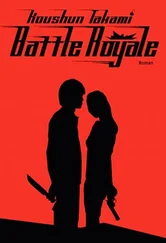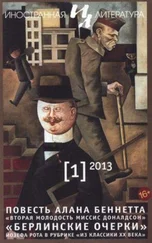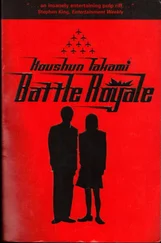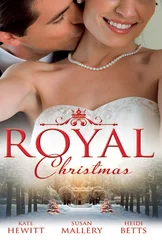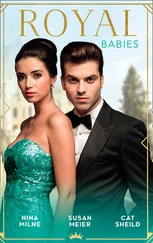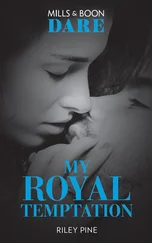Ральф Эллисон - Battle Royal
Здесь есть возможность читать онлайн «Ральф Эллисон - Battle Royal» весь текст электронной книги совершенно бесплатно (целиком полную версию без сокращений). В некоторых случаях можно слушать аудио, скачать через торрент в формате fb2 и присутствует краткое содержание. Жанр: short_story, на английском языке. Описание произведения, (предисловие) а так же отзывы посетителей доступны на портале библиотеки ЛибКат.
- Название:Battle Royal
- Автор:
- Жанр:
- Год:неизвестен
- ISBN:нет данных
- Рейтинг книги:4 / 5. Голосов: 1
-
Избранное:Добавить в избранное
- Отзывы:
-
Ваша оценка:
- 80
- 1
- 2
- 3
- 4
- 5
Battle Royal: краткое содержание, описание и аннотация
Предлагаем к чтению аннотацию, описание, краткое содержание или предисловие (зависит от того, что написал сам автор книги «Battle Royal»). Если вы не нашли необходимую информацию о книге — напишите в комментариях, мы постараемся отыскать её.
Battle Royal — читать онлайн бесплатно полную книгу (весь текст) целиком
Ниже представлен текст книги, разбитый по страницам. Система сохранения места последней прочитанной страницы, позволяет с удобством читать онлайн бесплатно книгу «Battle Royal», без необходимости каждый раз заново искать на чём Вы остановились. Поставьте закладку, и сможете в любой момент перейти на страницу, на которой закончили чтение.
Интервал:
Закладка:
Ralph Ellison
Battle Royal
With the publication of his first novel, Invisible Man, in 1952, Ralph Ellison entered the American literary canon. Deservedly, for Invisible Man is a memorable work; yet in a way ironically, for the novel's immediate success and the elevation of the author to the public role of "spokesman-for-hvi people" would seem to have precluded subsequent work of equal ambition and risk. Of the writers in this volume, only two or three have enjoyed the early success that Ellison has had. The rapid movement from "invisibility" to "visibility" is a phenomenon of our consumer culture yet to be fully investigated.
Ralph Ellison was born in Oklahoma City, studied music at the Tuskegee Institute in Alabama, and moved to New York in 1936, where he began work with the Federal Writers' Project. He was an editor of Negro Quarterly before serving in the Merchant Marine during World War II. Apart from Invisible Man, Ellison has published the prose collection Shadow and Act (1964) and several short stories, yet uncollected. Of these, "King of the Bingo Game" (1944) is frequently anthologized. "Battle Royal," which, slightly revised, became the opening chapter of Invisible Man, was in fact published as a short story in 1948. It is both a work of art complete in itself and a compelling introduction to Invisible Man, the chronicle of a black man's search in the United States of the mid-century—"It took me a long time and much painful boomeranging of my expectations to achieve a realization everyone else appears to have been born with: That I am nobody but myself. But first I had to discover that I am an invisible man!"
Battle Royal
It goes a long way back, some twenty years. All my life I had been looking for something, and everywhere I turned someone tried to tell me what it was. I accepted their answers too, though they were often in contradiction and even self-contradictory. I was naive. I was looking for myself and asking everyone except myself questions which I, and only I, could answer. It took me a long time and much painful boomeranging of my expectations to achieve a realization everyone else appears to have been born with: That I am nobody but myself. But first I had to discover that I am an invisible man!
And yet I am no freak of nature, nor of history. I was in the cards, other things having been equal (or unequal) eighty-five years ago. I am not ashamed of my grandparents for having been slaves. I am only ashamed of myself for having at one time been ashamed. About eighty-five years ago they were told they were free, united with others of our country in everything pertaining to the common good, and, in everything social, separate like the fingers of the hand. And they believed it. They exulted in it. They stayed in their place, worked hard, and brought up my father to do the same. But my grandfather is the one. He was an odd old guy, my grandfather, and I am told I take after him. It was he who caused the trouble. On his deathbed he called my father to him and said, "Son, after I'm gone I want you to keep up the good fight. I never told you, but our life is a war and I have been a traitor all my born days, a spy in the enemy's country ever since I give up my gun back in the Reconstruction. Live with your head in the lion's mouth. I want you to overcome em with yeses, undermine 'em with grins, agree 'em to death and destruction, let 'em swoller you till they vomit or bust wide open." They thought the old man had gone out of his mind. He had been the meekest of men. The younger children were rushed from the room, the shades drawn and the flame of the lamp turned so low that it sputtered on the wick like the old man's breathing. "Learn it to the younguns," he whispered fiercely; then he died.
But my folks were more alarmed over his last words than over his dying. It was as though he had not died at all, his words caused so much anxiety. I was warned emphatically to forget what he had said and, indeed, this is the first time it has been mentioned outside the family circle. It had a tremendous effect upon me, however. I could never be sure of what he meant. Grandfather had been a quiet old man who never made any trouble, yet on his deathbed he had called himself a traitor and a spy, and he had spoken of his meekness as a dangerous activity. It became a constant puzzle which lay unanswered in the back of my mind. And whenever things went well for me I remembered my grandfather and felt guilty and uncomfortable. It was as though I was carrying out his advice in spite of myself. And to make it worse, everyone loved me for it. I was praised by the most lily-white men in town. I was considered an example of desirable conduct — just as my grandfather had been. And what puzzled me was that the old man had defined it as treachery. When I was praised for my conduct I felt a guilt that in some way I was doing something that was really against the wishes of the white folks, that if they had understood they would have desired me to act just the opposite, that I should have been sulky and mean, and that that really would have been what they wanted, even though they were fooled and thought they wanted me to act as I did. It made me afraid that some day they would look upon me as a traitor and I would be lost. Still I was more afraid to act any other way because they didn't like that at all. The old man's words were like a curse. On my graduation day I delivered an oration in which I showed that humility was the secret, indeed, the very essence of progress. (Not that I believed this — how could I, remembering my grandfather? — I only believed that it worked.) It was a great success. Everyone praised me and I was invited to give the speech at a gathering of the town's leading white citizens. It was a triumph for the whole community.
It was in the main ballroom of the leading hotel. When I got there I discovered that it was on the occasion of a smoker, and I was told that since I was to be there anyway I might as well take part in the battle royal to be fought by some of my schoolmates as part of the entertainment. The battle royal came first.
All of the town's big shots were there in their tuxedoes, wolfing down the buffet foods, drinking beer and whiskey and smoking black cigars. It was a large room with a high ceiling. Chairs were arranged in neat rows around three sides of a portable boxing ring.
The fourth side was clear, revealing a gleaming space of polished floor. I had some misgivings over the battle royal, by the way. Not from a distaste for fighting but because I didn't care too much for the other fellows who were to take part. They were tough guys who seemed to have no grandfather's curse worrying their minds. No one could mistake their toughness. And besides, I suspected that fighting a battle royal might detract from the dignity of my speech. In those pre-invisible days I visualized myself as a potential Booker T. Washington. But the other fellows didn't care too much for me either, and there were nine of them. I felt superior to them in my way, and I didn't like the manner in which we were all crowded together in the servants' elevator. Nor did they like my being there. In fact, as the warmly lighted floors flashed past the elevator we had words over the fact that I, by taking part in the fight, had knocked one of their friends out of a night's work.
We were led out of the elevator through a rococo hall into an anteroom and told to get into our fighting togs. Each of us was issued a pair of boxing gloves and ushered out into the big mirrored hall, which we entered looking cautiously about us and whispering, lest we might accidentally be heard above the noise of the room. It was foggy with cigar smoke. And already the whiskey was taking effect. I was shocked to see some of the most important men of the town quite tipsy. They were all there — bankers, lawyers, judges, doctors, fire chiefs, teachers, merchants. Even one of the more fashionable pastors. Something we could not see was going on up front. A clarinet was vibrating sensuously and the men were standing up and moving eagerly forward. We were a small tight group, clustered together, our bare upper bodies touching and shining with anticipatory sweat: while up front the big shots were becoming increasingly excited over something we still could not see. Suddenly I heard the school superintendent, who had told me to come, yell, "Bring up the shines, gentlemen! Bring up the little shines!"
Читать дальшеИнтервал:
Закладка:
Похожие книги на «Battle Royal»
Представляем Вашему вниманию похожие книги на «Battle Royal» списком для выбора. Мы отобрали схожую по названию и смыслу литературу в надежде предоставить читателям больше вариантов отыскать новые, интересные, ещё непрочитанные произведения.
Обсуждение, отзывы о книге «Battle Royal» и просто собственные мнения читателей. Оставьте ваши комментарии, напишите, что Вы думаете о произведении, его смысле или главных героях. Укажите что конкретно понравилось, а что нет, и почему Вы так считаете.

